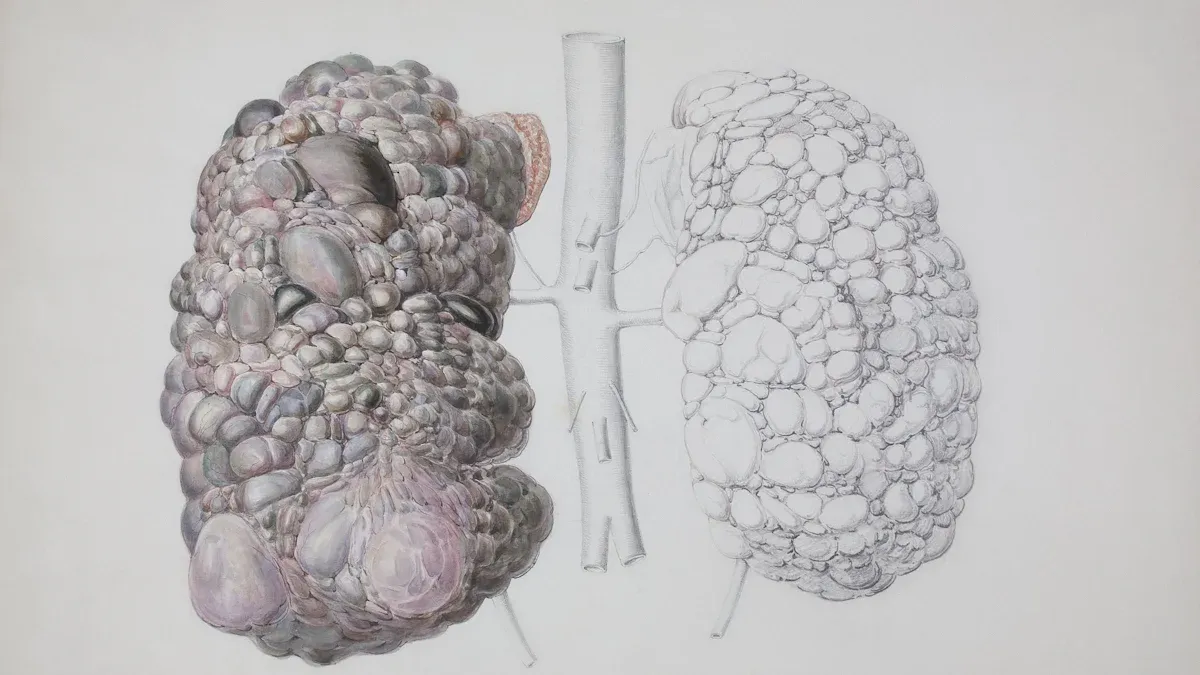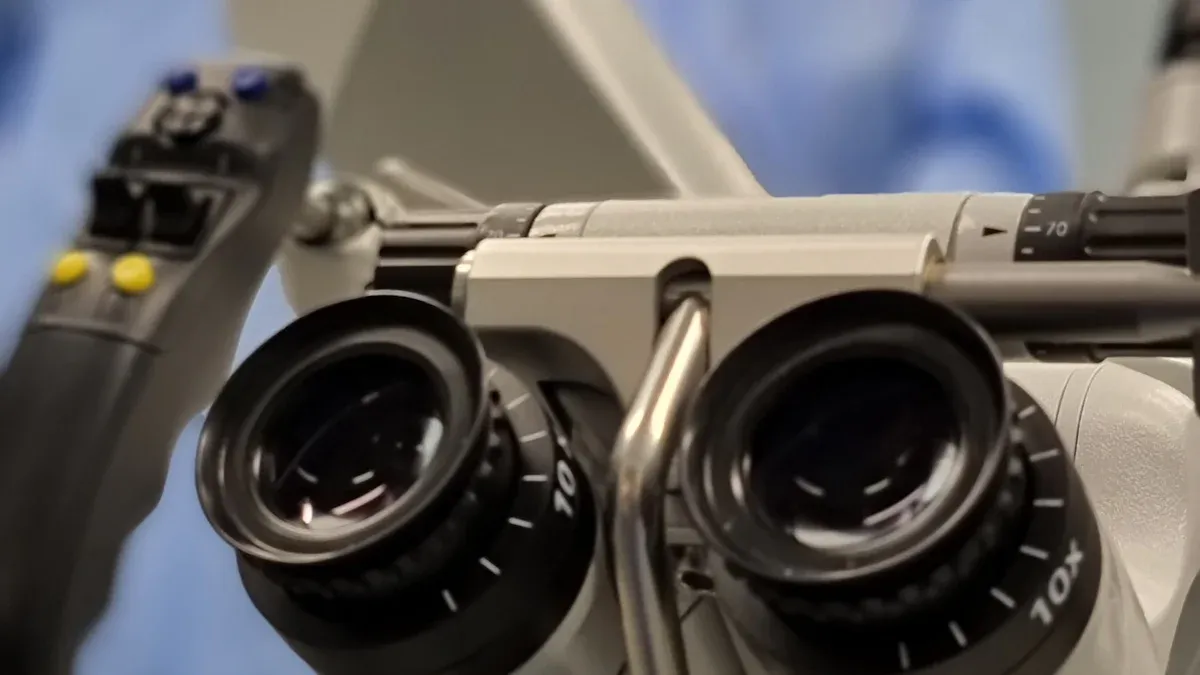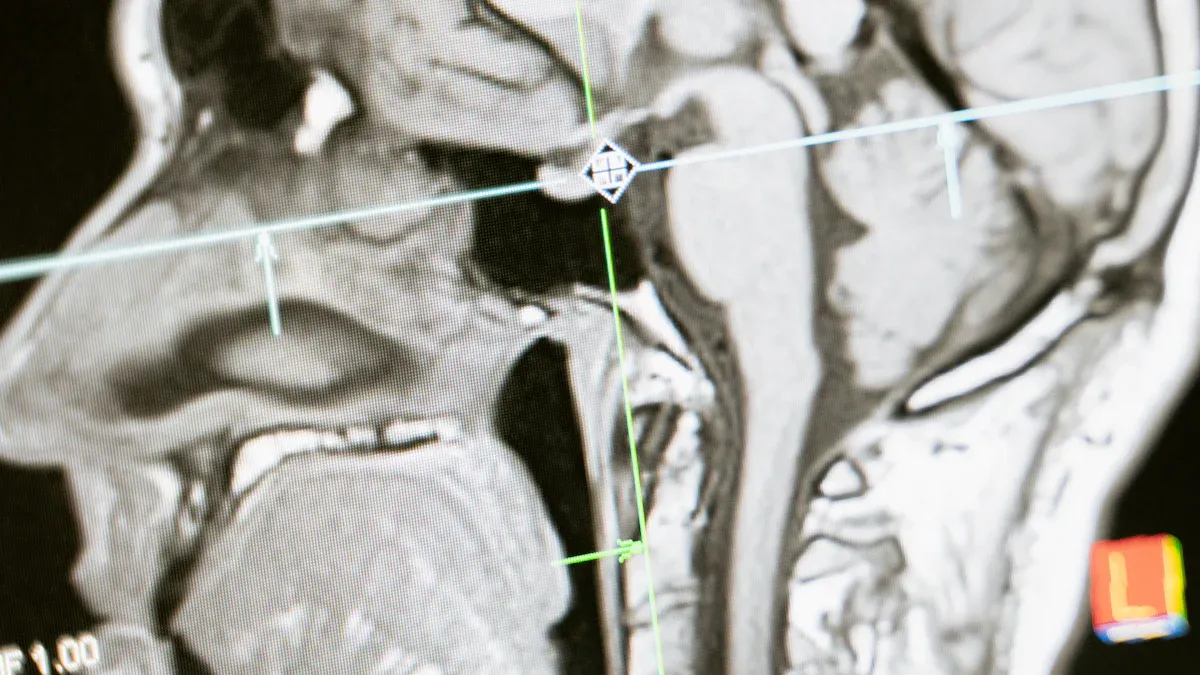The Ultimate Guide to Neurovascular Device Selection

Neurovascular devices are important for treating serious health problems. Every year, over 12.2 million people worldwide have a stroke. In the U.S., nearly 30,000 people have brain aneurysm ruptures. These facts show the need for better tools in care. Picking the right device can help patients recover better. For example, drug-coated stents have a low failure rate of 4.1%. Strong materials like Nitinol tubing make devices flexible and long-lasting. These materials are key to modern medical progress. The devices you choose affect patient safety and healing.
Key Takeaways
Picking the right neurovascular tool is key for healing. It helps patients recover better and faster.
Nitinol tubing boosts how tools work. Its strong and bendy nature makes surgeries safer and easier.
Tools must match the patient’s body well. A good fit lowers risks and helps treatments work better.
Checking tools often ensures they work properly. This keeps patients safe and cared for.
Learn about new tools and updates in neurovascular care. Knowing this helps doctors choose better treatments.
Overview of Neurovascular Devices
What Are Neurovascular Devices?
Neurovascular devices are tools used to treat brain and spine blood vessel problems. They help with serious issues like strokes, aneurysms, and AVMs. These tools include guidewires, catheters, stents, and embolization devices. Each tool is made for a specific job. For example, guidewires help doctors move through tricky blood vessels. Stents hold weak blood vessels open to keep them safe.
Why Are They Important in Modern Medicine?
Neurovascular devices are important because they help patients heal faster. They allow doctors to do less invasive surgeries, which means fewer risks. As more stroke centers open in the U.S., the need for these tools grows. New devices, like thrombectomy tools, have changed how strokes are treated. These tools give doctors more ways to help patients, backed by strong research.
A study showed how well these devices work. Coiling procedures had a success rate of 71.4%. Flow diversion stenting worked even better, with a 77.9% success rate. These numbers show that neurovascular devices are safe and effective in today’s medicine.

Key Advancements in Neurovascular Technology
The Role of Nitinol Tubing in Device Innovation
Nitinol tubing has improved how neurovascular devices are made and used. This material is both strong and bendable, making it perfect for brain surgeries. Devices like self-expanding stents use Nitinol to fit blood vessels better. This makes surgeries safer and more effective.
AccuPath’s Nitinol tubing is known for its high quality. It is used in advanced stents and coils to treat strokes and aneurysms. Choosing devices with Nitinol tubing means better results and longer-lasting tools.
Key Factors to Consider
Device Compatibility with Patient Anatomy
When picking neurovascular devices, they must fit the patient’s body. Everyone’s blood vessels are shaped differently, which affects device use. For instance, catheters and stents must move through tight, curvy brain paths. If devices don’t adjust well, problems or poor results can happen.
Studies show that how well a device fits the body is very important. Devices made with Nitinol, like stents, handle body movements and keep their shape. Real-life case models can also show how devices work in different bodies. This helps ensure safer and better use of these tools.
Material and Durability
The material of a device affects how long it lasts and works. Devices need to handle body movements without breaking or failing. Nitinol tubing is popular because it is both strong and bendable. This makes it great for medical procedures.
Benefits of Nitinol Tubing in Neurovascular Applications
Nitinol tubing has many benefits for neurovascular tools. Its superelasticity lets devices like stents and catheters return to shape after bending. This helps them move through tricky blood vessels without damage. Nitinol is also safe for the body, lowering the chance of bad reactions.
AccuPath’s Nitinol tubing is known for being strong and dependable. It is tested carefully to make sure it lasts in real-life use. Choosing devices with AccuPath’s Nitinol tubing gives patients safer and longer-lasting care.
Intended Use and Procedure Type
Using the right device for the right job is key. Each neurovascular tool is made for a specific task. For example, catheters deliver special agents, while stents support weak blood vessels. The FDA says the design of these tools affects healing. This shows why picking the right device for the job is so important.
Follow-up checks are also needed to see how well devices work over time. These checks make sure the device does what it’s supposed to do, helping patients heal better.
Safety and Regulatory Approvals
Choosing safe neurovascular devices is very important. Groups like the FDA and EMA check these devices carefully. They make companies test devices in clinical trials before approval. These tests ensure the devices work well and are safe to use.
After approval, devices are watched for problems. This step finds risks or ways to improve them. In Europe, the MDR rule is now required. It makes sure devices follow updated safety and performance rules. Companies must meet these rules to keep their devices approved.
AccuPath’s Nitinol tubing meets these strict rules. Its strong design passes tough tests and checks. Devices made with AccuPath’s tubing follow global safety standards you can trust.
Accurate Device Dimensions for Optimal Fit
The size of neurovascular devices affects how well they work. A bad fit can cause problems or make them less effective. For example, stents must match blood vessels to give support. Catheters also need the right size to move through tricky paths.
Manufacturers use special methods to get the right sizes. They test devices with real-life body models to avoid mistakes. This helps improve results for patients. Nitinol tubing helps because it bends and moves with the body. This makes devices fit better.
AccuPath’s Nitinol tubing is precise and dependable. Its flexibility and strength make it great for perfect-fitting devices. Choosing tools with AccuPath’s tubing ensures safety and top performance.
Types of Neurovascular Devices

Guidewires
Guidewires are important tools for brain blood vessel treatments. They help doctors move through the brain's tiny blood vessels. These wires deliver tools like catheters and embolization devices to exact spots. They need to bend easily and have soft tips to protect fragile arteries.
Modern guidewires use advanced designs for better performance. Special wire shaping gives them the right size and strength. Smooth coatings help them slide easily through tough areas. These features make guidewires dependable, even in hard procedures. AccuPath’s Nitinol tubing adds flexibility and strength, making navigation safer and easier.
Catheters
Catheters are key tools in treating brain blood vessel problems. They deliver medicine, plugs, or devices to specific places. Different catheters do different jobs. For example, some remove clots, while others treat aneurysms with special materials.
New catheter designs have improved patient care. These tools help patients recover faster and spend less time in hospitals. Modern products, like Infinity Neuro's Inspira catheters, show how useful they are. Catheters made with AccuPath’s Nitinol tubing are strong and flexible, ensuring accurate and lasting results.
Embolization Devices
Embolization devices treat problems like aneurysms and abnormal blood vessels. These include coils, plugs, and liquid blockers. Coils stop blood flow in aneurysms, while plugs and liquids close off problem vessels.
Tests show embolization devices work well to shrink lesions and block blood flow. Safety checks focus on reducing nerve damage and improving results. Devices made with AccuPath’s Nitinol tubing are reliable and safe for these treatments.
Tip: Picking the right embolization device can help patients heal better. Always check the material and design for the best results.
Stents
Self-Expanding Stents and Their Role in Treatment
Self-expanding stents are important tools for brain treatments. These stents open on their own after being placed. They help support weak or damaged blood vessels. Doctors use them to treat problems like aneurysms and narrowed arteries. Their ability to fit the vessel's shape lowers the chance of issues.
One big advantage of self-expanding stents is their flexibility. This lets them move through the brain's tiny, twisty blood vessels easily. When used with tools like catheters, they can be placed very accurately. This helps patients heal faster and recover better.
There are different stents with special features. The table below shows some common ones used in brain procedures:
Stent Type | Unique Features | Advantages |
|---|---|---|
Leo Stent | Closed cell pattern, large metal surface area | Helps blood flow, easy to remove |
LVIS Device | Strong radial force, clear visibility inside | Fits well, improves blood flow |
Flow Diverters | Fine-mesh design | Changes blood flow, helps fix aneurysms |
These stents, along with guidewires and catheters, make tough procedures safer and more effective.
Advantages of Stents Made with Nitinol Tubing
Stents made with Nitinol tubing work very well in brain treatments. Nitinol's superelasticity helps stents return to their shape after bending. This ensures they fit perfectly in blood vessels. This feature keeps blood flowing and prevents vessel collapse.
Nitinol tubing also makes stents last longer. It resists wear and tear, even in tough conditions. This makes it a great choice for long-term care.
AccuPath’s Nitinol tubing is known for being precise and dependable. It goes through strict testing to meet top safety standards. Stents made with AccuPath’s tubing are flexible and give great results. Choosing these stents ensures safe and effective treatments for patients.
Note: Always talk to your medical team to pick the best stent. The right choice can make a big difference in treatment success.
Matching Devices to Medical Conditions

Ischemic Stroke
Recommended Devices and Their Applications
Ischemic strokes happen when blood clots block arteries. This stops blood from reaching the brain. To treat this, doctors need accurate tools. Devices like thrombectomy catheters and guidewires help remove clots. These tools carefully move through tricky arteries to clear blockages.
In 2022, ischemic strokes made up over 40% of the neurovascular device market. This shows a big need for better treatments. In the U.S., about 795,000 people have strokes each year. Of these, 87% are ischemic strokes. Using advanced tools helps patients recover faster and improves results.
Tip: Pick devices made for clot removal, like those with AccuPath’s Nitinol tubing. Their strength and flexibility make procedures safer and more effective.
Aneurysms
Devices for Coiling and Stenting
Cerebral aneurysms are bulges in brain blood vessels. If untreated, they can be very dangerous. Coiling and stenting are common treatments. Coils block blood flow to the aneurysm, stopping it from bursting. Stents support weak vessels and keep them stable.
A 2022 study showed the WEB device works well for ruptured aneurysms. It had high success rates and few problems. Using staged stenting also gave better results than single stents. Devices with AccuPath’s Nitinol tubing make these treatments stronger and more flexible.
Note: Combining coiling and stenting often works best. Talk to your doctor to find the right treatment plan.
Arteriovenous Malformations (AVMs)
Embolization Devices for AVM Treatment
AVMs are abnormal links between arteries and veins. They disrupt blood flow and can cause serious issues. Embolization is a key way to treat AVMs. Tools like plugs and liquid embolics block problem vessels and lower bleeding risks.
Training helps doctors use embolization devices better. Knowing how tools work in different bodies improves results. A study in the New England Journal of Medicine stressed matching devices to patient needs. AccuPath’s Nitinol tubing makes embolization tools strong and dependable, even in tough cases.
Callout: Picking the right device is vital for AVM care. Always choose tools that are safe and precise.
Other Conditions
Tools for Treating Carotid Artery Stenosis and Intracranial Stenosis
Carotid artery stenosis and intracranial stenosis block blood flow to the brain. These blockages raise the chance of strokes and other health problems. Doctors often use stents and embolization tools to treat these issues. These devices help reopen arteries and keep them stable.
Stents are very important for carotid artery stenosis treatment. They hold arteries open and stop them from narrowing again. Self-expanding stents made with AccuPath’s Nitinol tubing work well. Their bendable design fits the artery’s natural curves securely. This reduces risks and improves long-term results.
For intracranial stenosis, embolization tools are key. These devices control blood flow and protect the brain from harm. Guidewires, used with embolization tools, help doctors move through tiny brain vessels. The soft tips and flexibility of guidewires lower the chance of vessel damage.
Studies have shown how well these treatments work. The table below shares results from two major studies:
Study Name | Year | Findings | Outcome |
|---|---|---|---|
VISSIT | 2015 | Higher stroke/TIA rates in stenting group | Ended early |
SAMMPRIS | 2016 | More stroke/death cases in stenting group | Negative results |
These studies highlight the need for choosing the right tools and materials. Devices made with AccuPath’s Nitinol tubing are tested carefully for safety and dependability. Their strength and accuracy make them a reliable option for treating these conditions.
Tip: Talk to your medical team to pick the best embolization device. The right choice can improve recovery and lower risks.
Tips for Decision-Making
Working Together as a Team
Teaming up with experts improves choices for neurovascular devices. Each person in the team has special knowledge to share. Doctors, for instance, understand patient needs and help create better tools. When healthcare workers and device makers work together, they can fund research. This teamwork leads to better treatments and improved devices.
Good communication is very important in the team. It helps consider patient details like anatomy and condition severity. Training programs also help teams handle different cases. These programs teach how to use tools like embolization devices well. Planning early and using the right tools can greatly improve patient care.
Tip: Practice with simulations to see how neurovascular guide wires work in different body types. This makes treatments safer and more effective.
Learning About New Technologies
Staying informed about new neurovascular tools is very important. Websites like Endovascular Today and Medical Product Outsourcing share updates on new devices. They talk about innovations in tools like embolization devices and guide wires. Reports from Grand View Research also show trends in new technologies.
Groups like the FDA and EMA help push for better tools. They require strict testing to ensure devices are safe and work well. These rules encourage the creation of advanced tools, like those using AccuPath’s Nitinol tubing. Knowing about these updates helps you make smarter choices for patients.
Checking How Devices Work
Testing how devices perform is key to helping patients heal. Training programs from medical groups teach how to use tools like embolization devices. The FDA also requires training from device makers to ensure proper use.
The table below shows why training and testing are so important:
Evidence Description | Key Points |
|---|---|
2015 NEJM Data | Training improves patient outcomes in neurovascular care. |
Training Standards | Boosts skill and patient safety. |
Device Company Training | FDA rules ensure proper use of devices. |
AccuPath’s Nitinol tubing is tested carefully to ensure it is safe and reliable. Its strength and flexibility make it great for embolization tools and guide wires. Picking devices with proven results helps patients recover faster and lowers risks.
Note: Always test devices in real-life situations. This ensures they meet your patients’ specific needs.
Partnering with Trusted Manufacturers
Why AccuPath's Nitinol Tubing Is a Reliable Choice
Picking the right maker for neurovascular tools is very important. It helps keep patients safe and improves treatment success. AccuPath is a trusted company known for its high-quality Nitinol tubing.
AccuPath’s Nitinol tubing is carefully made to improve tools like stents, catheters, and embolization devices. Its special features, like being super stretchy and body-safe, make it great for brain procedures. These qualities help tools move with the body, lowering risks during surgeries.
The company ensures quality by testing every batch of Nitinol tubing. These tests check if the tubing meets safety rules worldwide. This careful process makes sure the tubing works well in real-life treatments, giving doctors and patients confidence.
AccuPath also focuses on new ideas. They use advanced methods to make tubing that is strong and bendable. This makes it perfect for guide wires and embolization tools, which need to be tough and flexible for tricky procedures.
Working with AccuPath means choosing a company that values safety and innovation. Their Nitinol tubing is key to making top neurovascular tools. It offers great performance and dependability. When picking materials, AccuPath helps you achieve the best results for patients.
Tip: Always pick makers with proven safety and innovation records. AccuPath’s Nitinol tubing ensures your tools meet top quality standards.
Picking the right neurovascular tool is very important. Different problems need specific tools to work best. Materials like Nitinol tubing have changed how devices perform. These materials are strong and bendable, making surgeries safer.
Good choices depend on testing and trusted makers. AccuPath’s Nitinol tubing is known for being safe and reliable. By choosing quality tools, you can help patients heal better and faster.
FAQ
Why is Nitinol tubing great for neurovascular tools?
Nitinol tubing is very strong and flexible. Its superelasticity helps devices fit the brain's tiny blood vessels. This makes surgeries safer and improves results. AccuPath’s Nitinol tubing is precise and long-lasting, making it a top choice for advanced tools.
Tip: Pick devices made with trusted materials like Nitinol for the best results.
How do I pick the right neurovascular tool for a procedure?
Think about the patient’s blood vessels, the problem, and the tool’s purpose. Make sure the tool meets safety rules and fits well. Tools with AccuPath’s Nitinol tubing are flexible and reliable, perfect for tricky procedures.
Are neurovascular tools safe for long-term use?
Yes, most tools are tested to ensure they are safe and last long. Materials like Nitinol handle body movements and don’t wear out easily. AccuPath’s Nitinol tubing meets global safety rules, making it dependable for long-term care.
Note: Regular check-ups with your doctor ensure the tool keeps working well.
Why does device fit matter for patient anatomy?
Everyone’s blood vessels are shaped differently. A good fit helps tools move smoothly and avoids problems. Tools with AccuPath’s Nitinol tubing bend with the body, making treatments safer and more successful.
How can I learn about new neurovascular tools?
Read trusted medical articles, go to events, and check updates from makers like AccuPath. They focus on new ideas and share news about advanced tools made with strong Nitinol tubing.
Emoji Reminder: 🧠 Learning about new tools helps you make better choices for patients!

